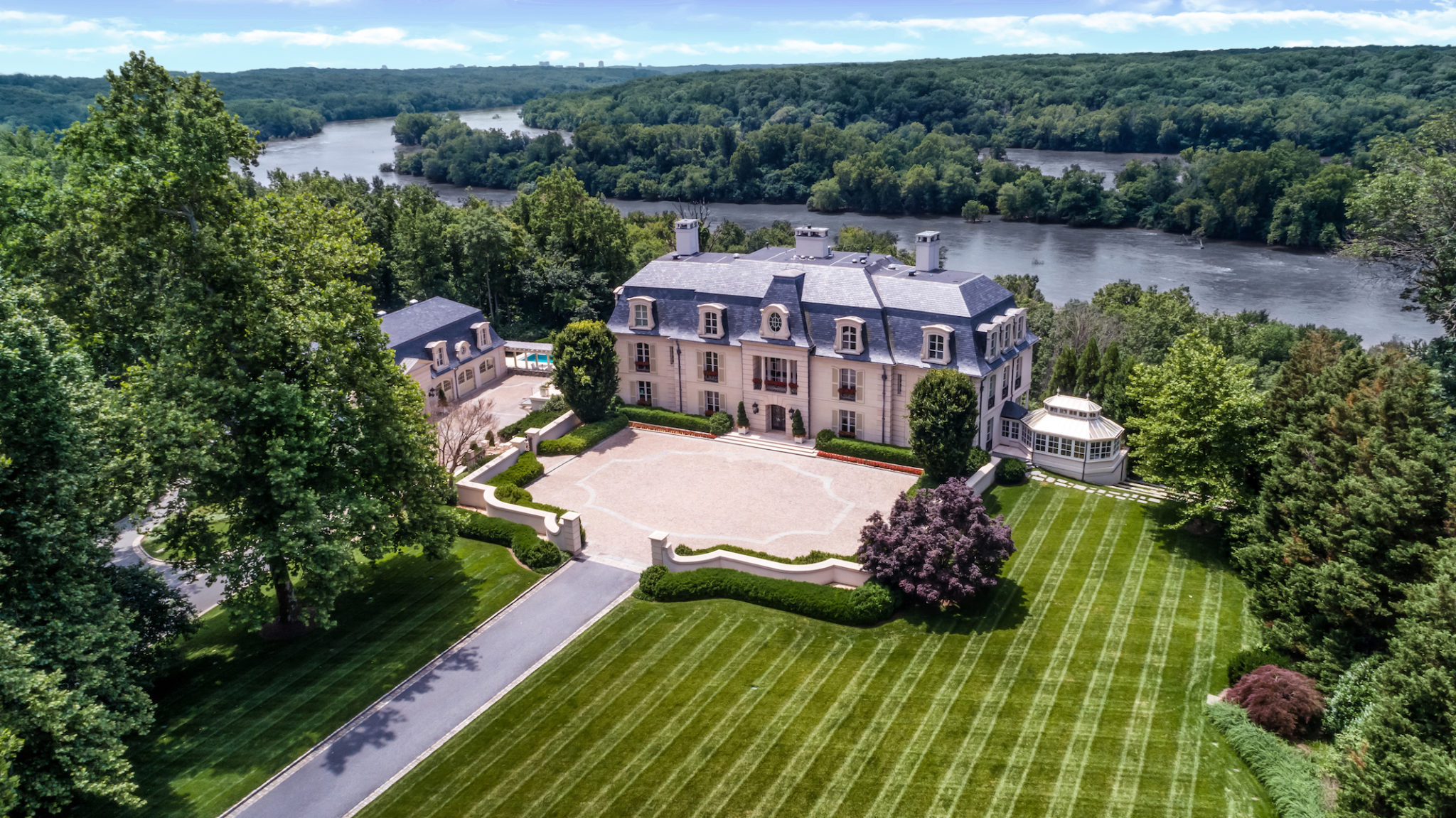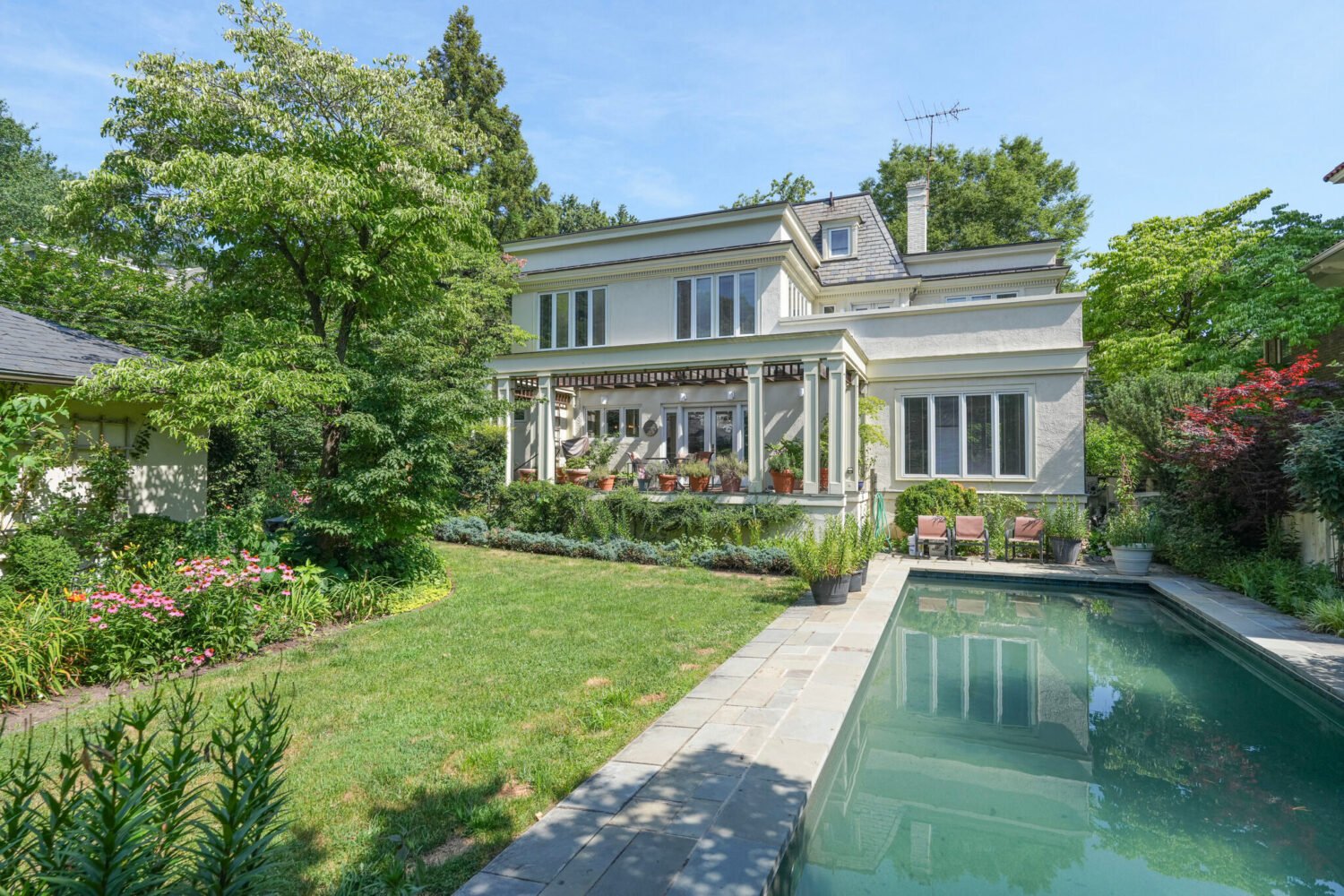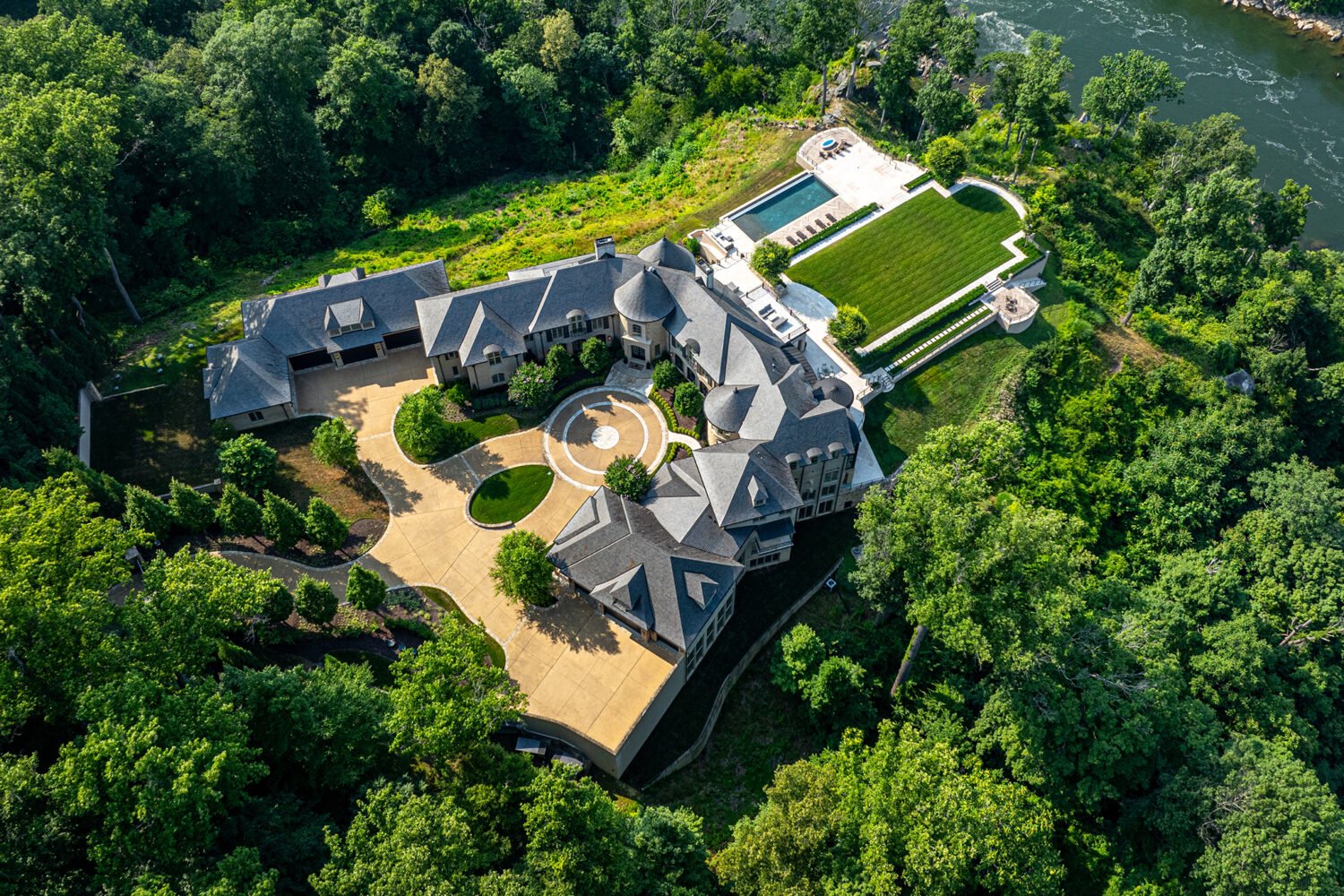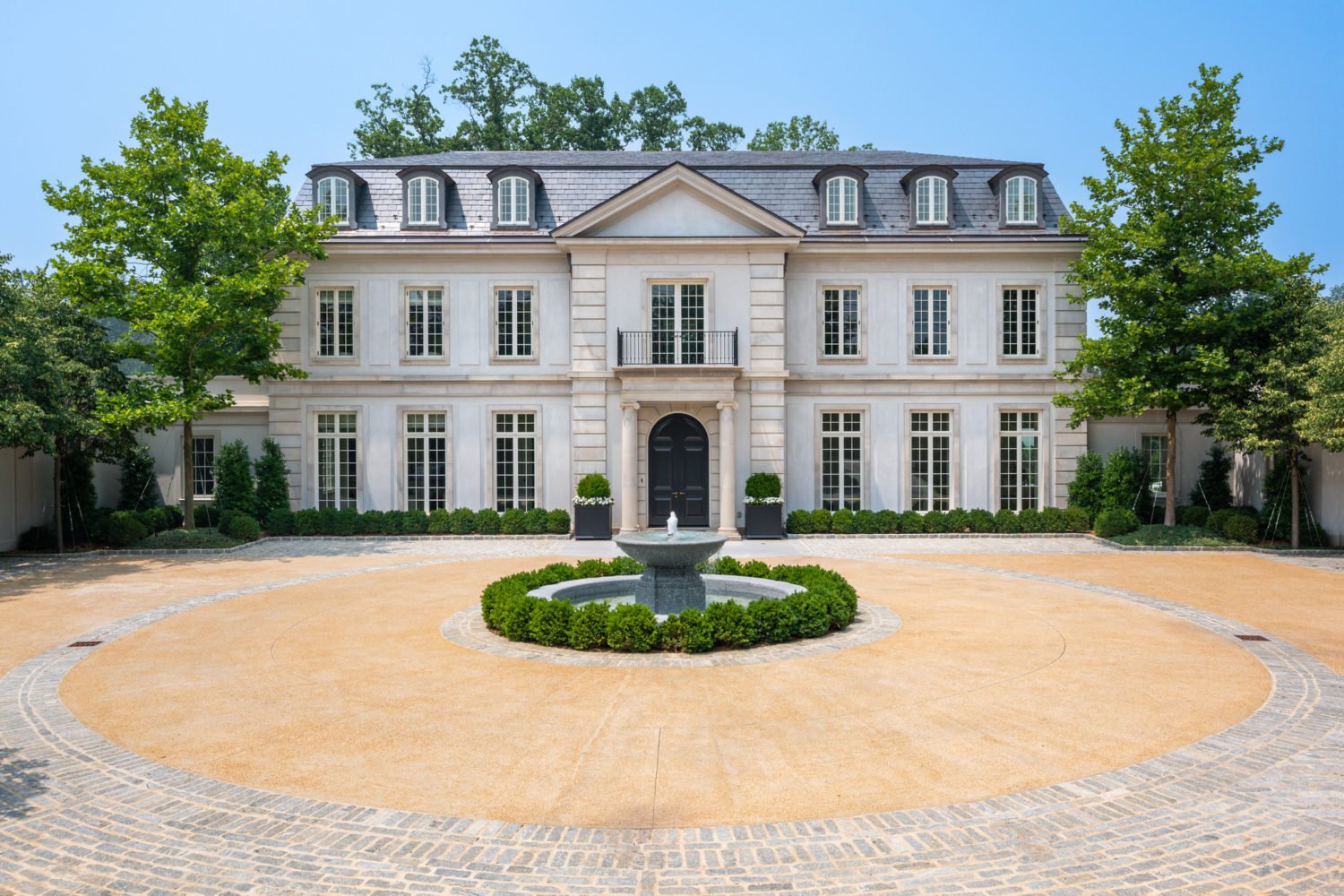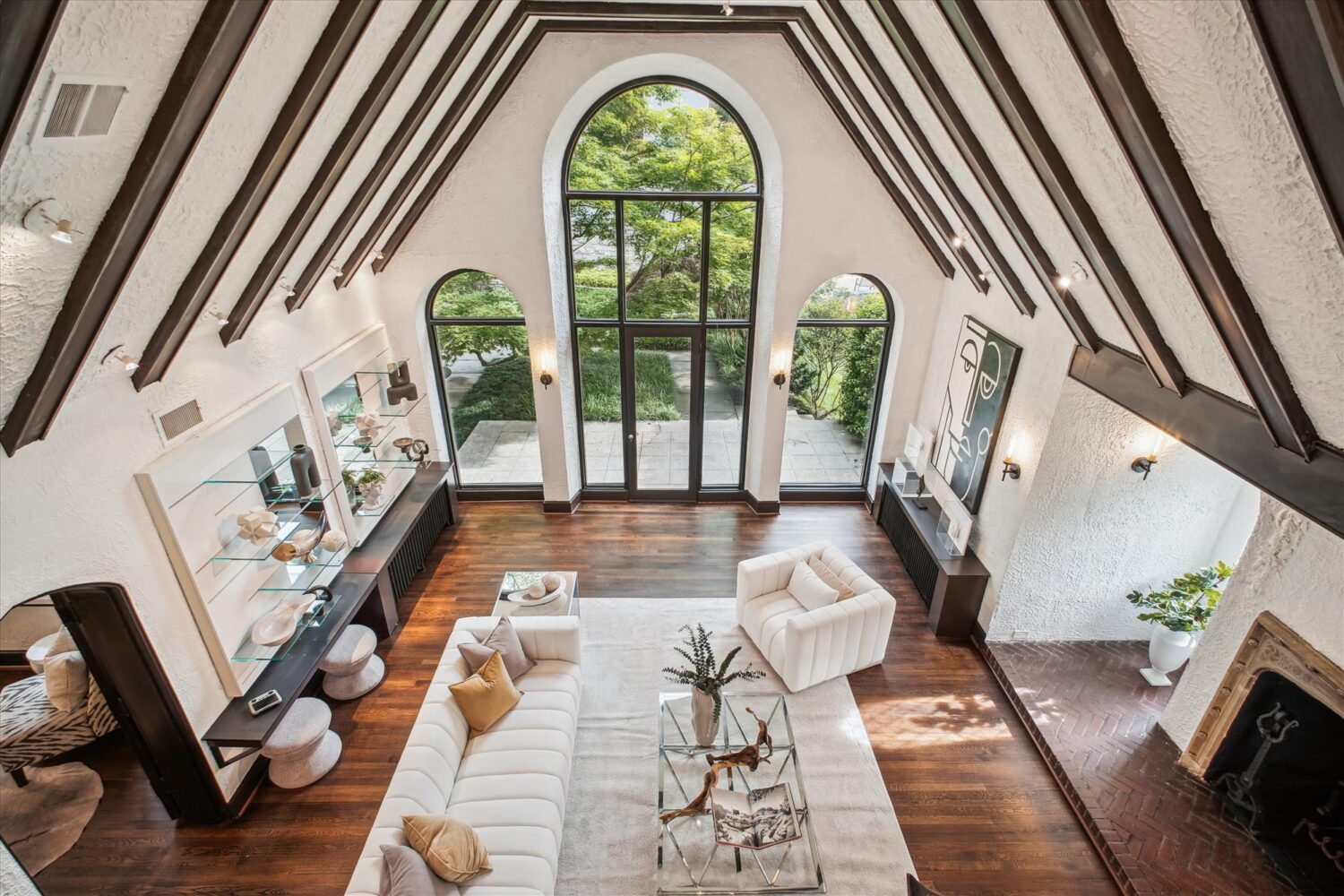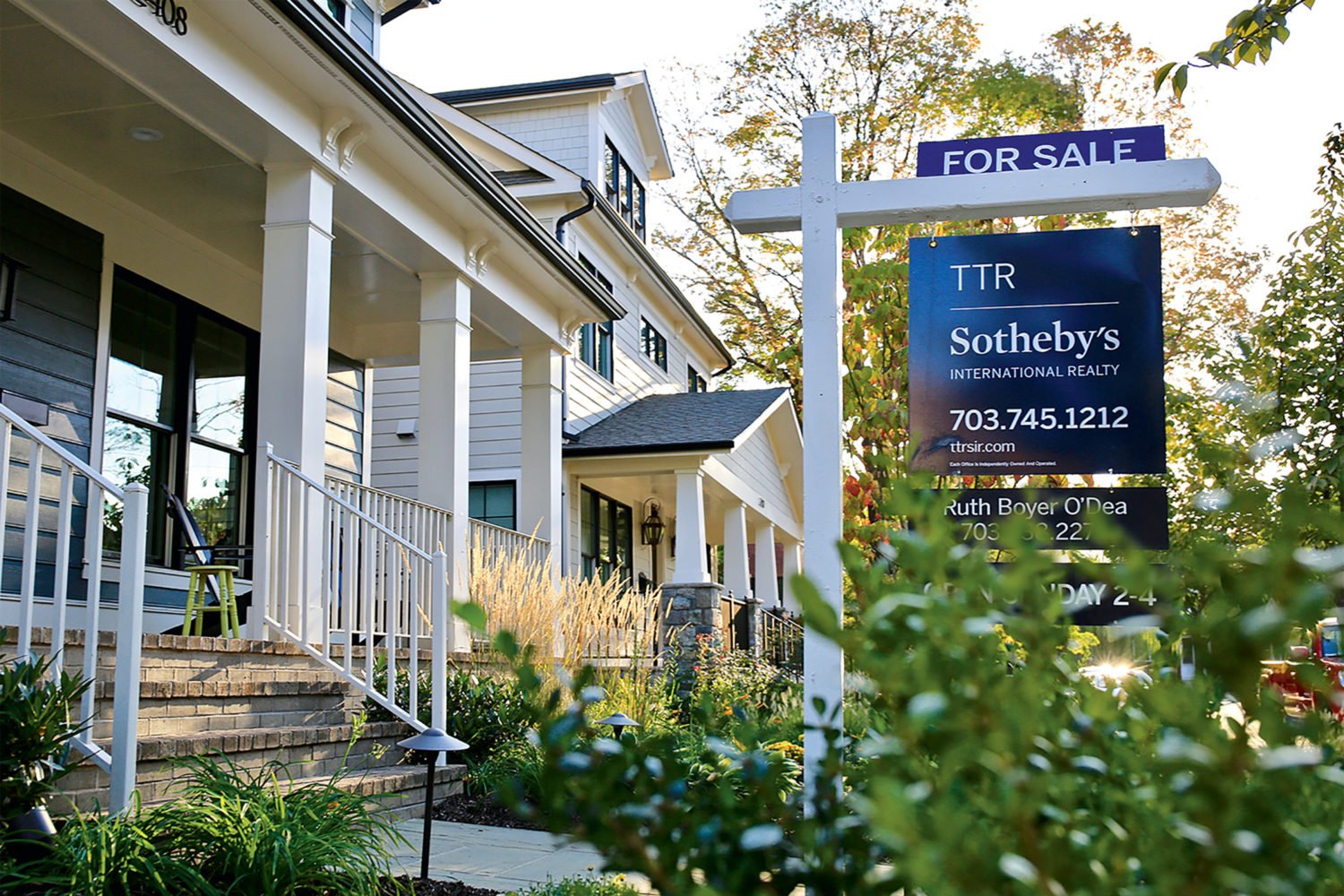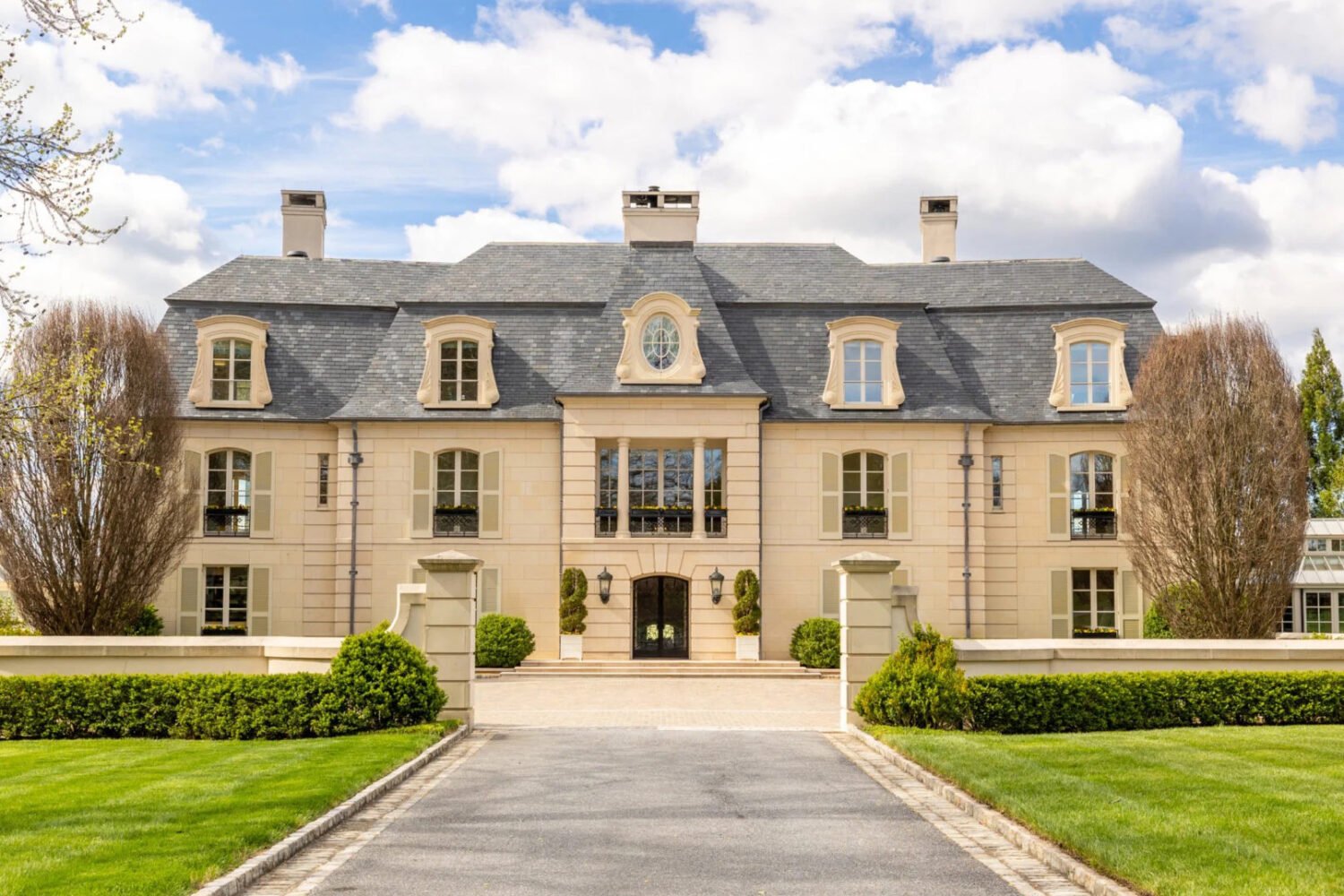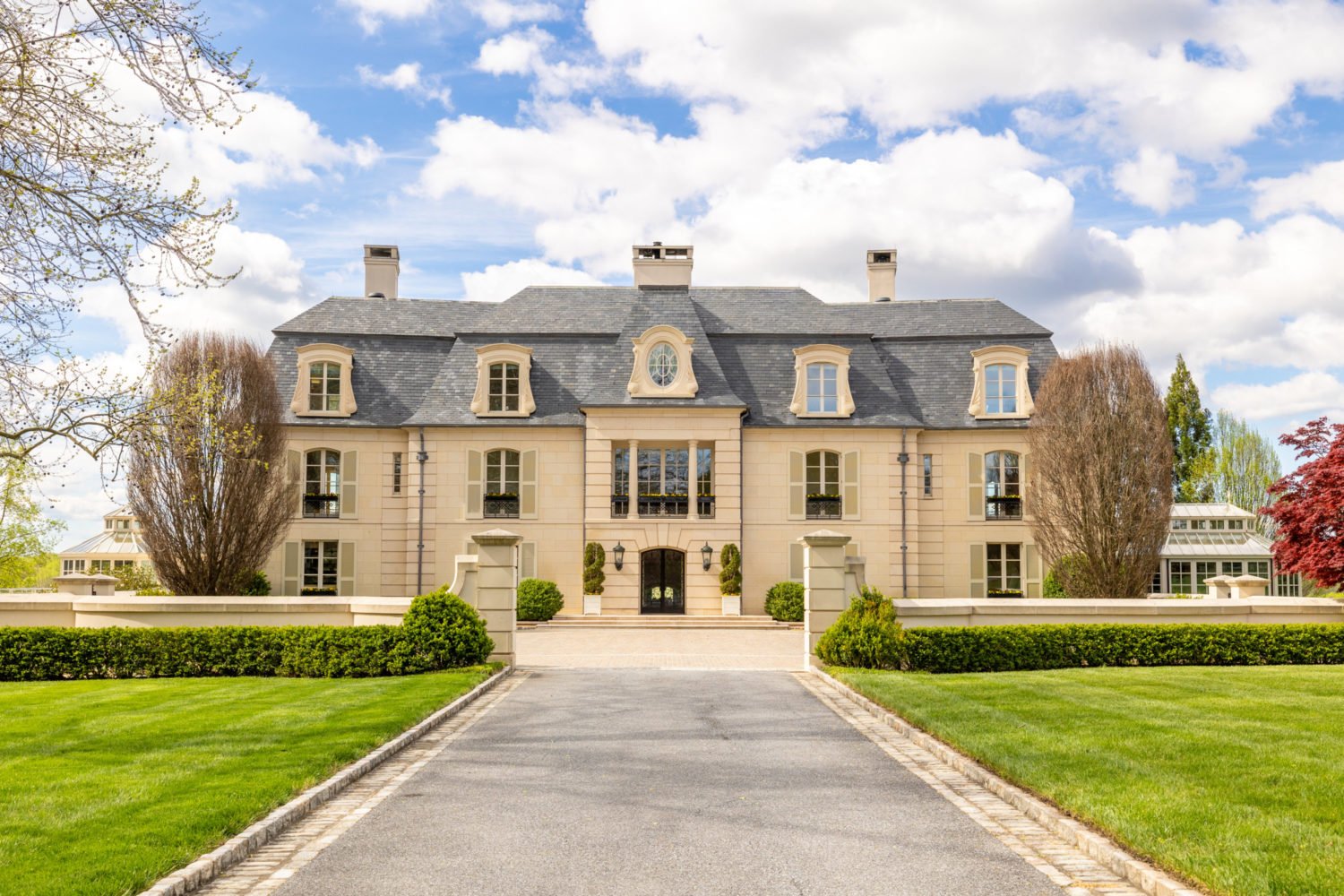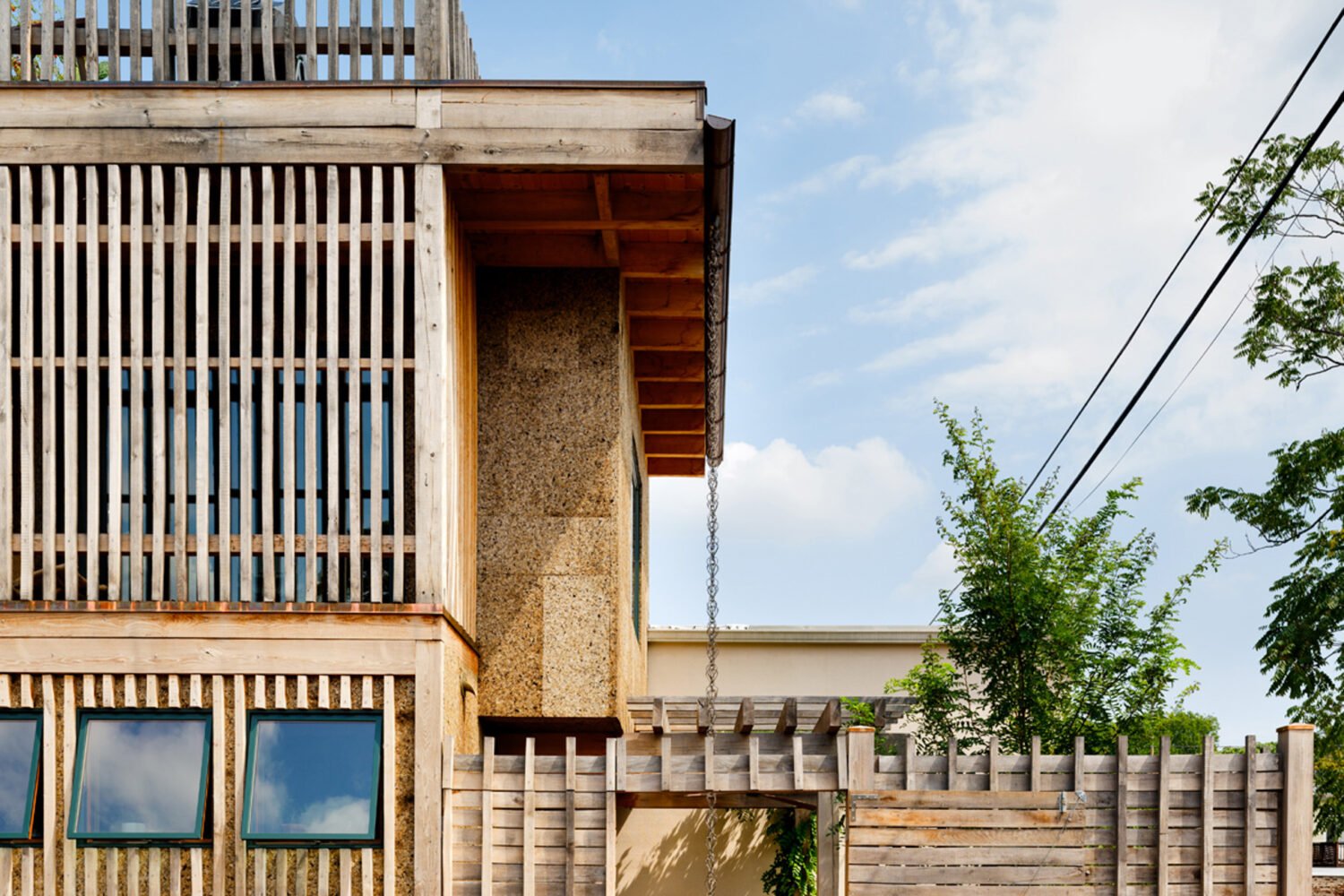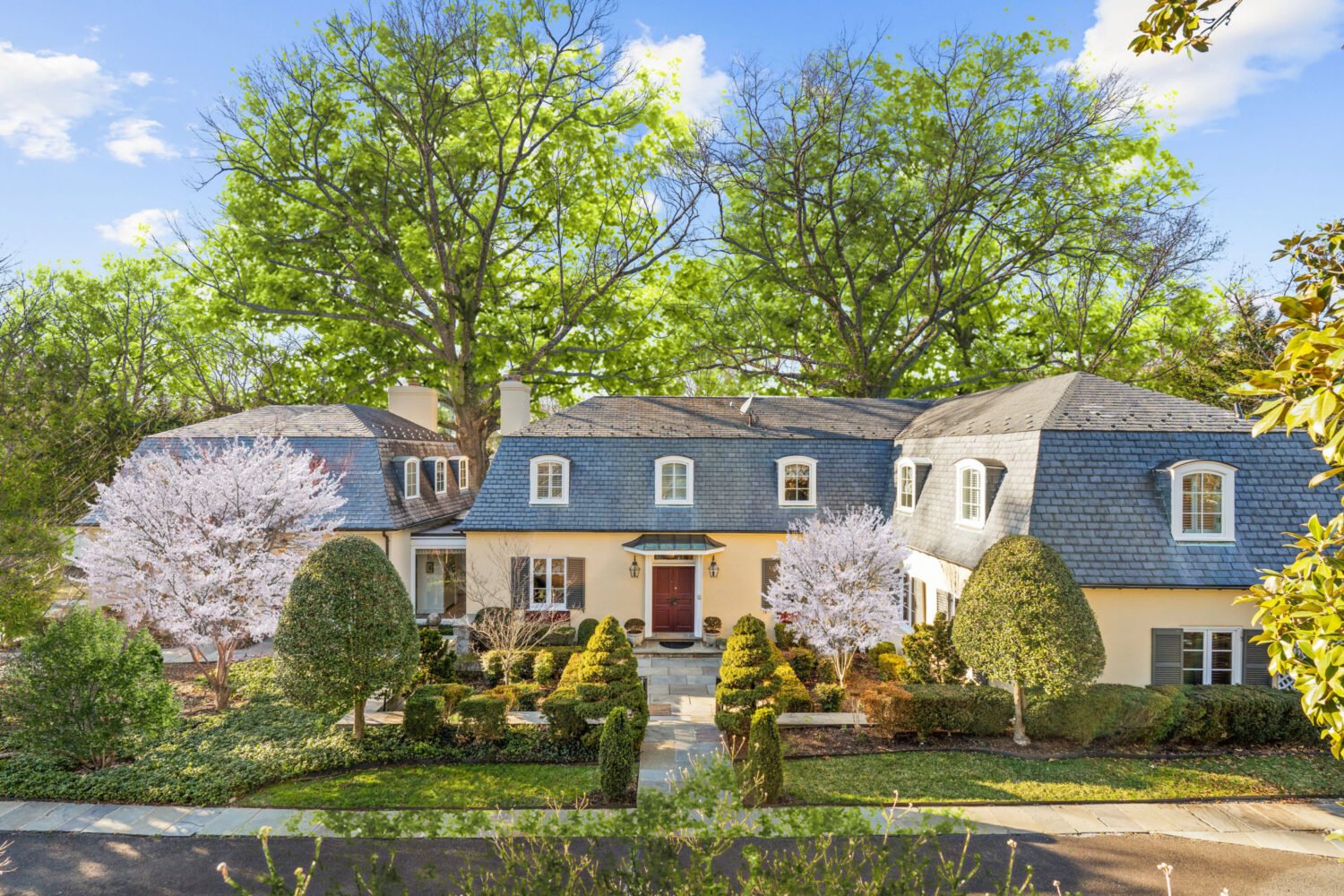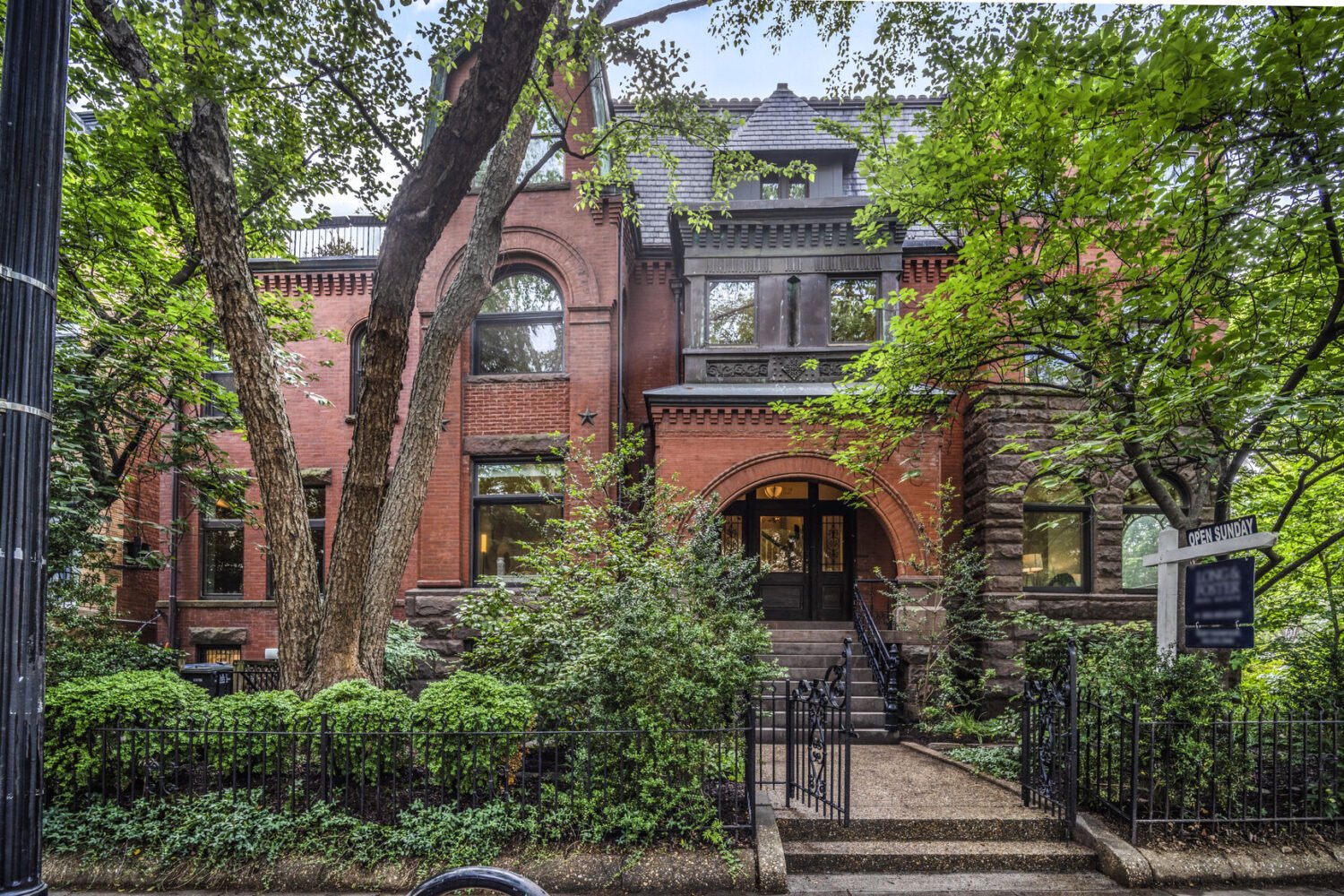It’s been more than two years since former Washington Commanders owner and local persona non grata Dan Snyder listed his French chateau-style Potomac mansion on the market. Since then, Snyder dropped the asking price by $14 million and, ultimately, donated the property to the American Cancer Society, which put it back up for sale last May.
The palatial home boasts five bedrooms, 12 bathrooms, and 13.5 acres of land overlooking the Potomac River. The asking price dropped again in September, now sitting at a cool $30 million. Any perceived Snyder-shaped stain on the property should theoretically be erased, given that he gifted it to the American Cancer Society and thus totally disentangled himself from the transaction. So why is the house still on the market?
“I don’t think anyone on our end anticipated that it would be a quick sale,” says Cara Pearlman, the property’s Compass listing agent. Properties move at a slower pace in the ultra-luxury market, Pearlman says: “Someone like you or I purchasing a house, we might not take a month to come up with our offer. Whereas, when you’re buying a property at this scale, between square footage and physical property, I think there’s a lot of different attributes that come into play-—the cost of maintenance, the cost of whatever work you’re going to do to make it custom to your needs.”
That said, Pearlman does see a light at the end of the tunnel. “We’ve certainly seen an uptick in interest and in inquiries in comparison to different parts of the year,” she says. “Obviously, coming into the spring market in general, the world kind of [wakes up], but I think the ultra-luxury market has been particularly active since the election.”
When President Trump’s billionaire-laden cabinet first descended on the DC area, multimillion-dollar homes saw a major upswing in activity—the “Trump bump,” if you will. And perhaps any perceived ghosts of Snyder lingering in the wine cellar would be welcome among Trump-adjacent buyers; Snyder donated handsomely to Trump’s 2016 campaign and invested in the 2024 Trump biopic The Apprentice, a film he later tried to stymie the release of because he thought it was supposed to be “flattering” (it wasn’t).
Obviously, the Trump bump hasn’t given a tangible boost to Snyder’s former residence—at least, not yet. Regardless, Pearlman thinks it’s good news for the market.
“If I try to put myself in the position of the potential purchaser, I think that seeing that activity would make me feel even more confident in entering the market,” Pearlman says. “But I don’t know that we’ve been a direct beneficiary of the Trump bump in the way that maybe the close-in, ultra-luxury properties have been, inside the DC line.”
Some real-estate agents have floated the idea that part of the property’s stagnation has to do with its age—Compass agent Sarah Hake told the Washington Post in October that the home, which was built in 2004, wouldn’t be considered turnkey among high-end buyers and thus, likely to wind up a “teardown.” Someone who could afford to spend tens of millions of dollars on a home likely wouldn’t have the time to make extensive renovations, Hake said.
Pearlman disagrees.
“When you’re in this range of property and you’re appealing to these buyers, I think it’s very rare that any of these houses come on the market and the person that buys it leaves it exactly how it is,” she says. “I think if you’ve got that amount of wealth and access, you probably have something very specific in mind.”
And the looming idea that Snyder’s former ownership has marked the home for good? “I don’t think there’s any truth to that,” Pearlman says. “I think it made for a good way to rationalize something. In the end, if you’re looking for a unique property, you’re not going to not buy it because of who owned it in the past.”
If anything, according to Pearlman, the property’s current owner—the American Cancer Society—”kind of gives it a really wonderful light.” Snyder is no longer in the picture at all; the nonprofit says it has taken on all financial burdens related to the sale.
“As the owner of the property, we are responsible for its upkeep and ensuring it meets the standards expected by potential buyers,” the American Cancer Society wrote in a statement emailed to Washingtonian by Pearlman. “This responsibility was carefully considered when we accepted the gift and has remained in line with our expectations.”
And once the home is sold, where will the profits go?
“The funds will be instrumental in advancing the mission of the American Cancer Society, enabling us to enhance patient services, drive groundbreaking research, and strengthen advocacy efforts—all with the ultimate goal of ending cancer as we know it, for everyone,” the statement reads.

